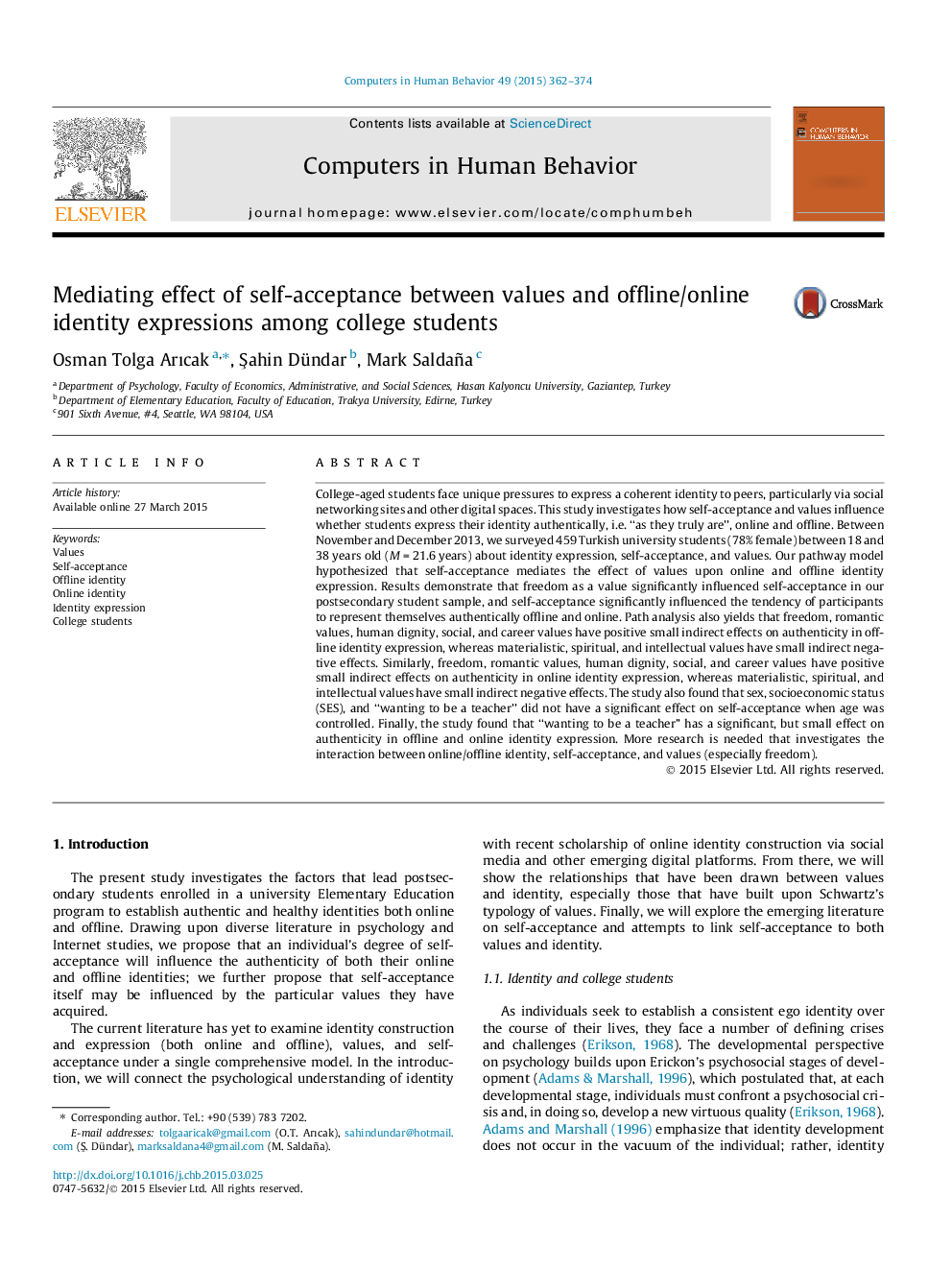| کد مقاله | کد نشریه | سال انتشار | مقاله انگلیسی | نسخه تمام متن |
|---|---|---|---|---|
| 350336 | 618442 | 2015 | 13 صفحه PDF | دانلود رایگان |
• We study how values and self-acceptance influence authenticity of identity expression.
• Our model identifies self-acceptance as mediator between values and identity.
• Only freedom influences authentic identity expression via self-acceptance.
• Desire to be teacher predicts online and offline identity authenticity.
• Sex and socioeconomic status have no significant effect on self-acceptance or online/offline identity expression.
College-aged students face unique pressures to express a coherent identity to peers, particularly via social networking sites and other digital spaces. This study investigates how self-acceptance and values influence whether students express their identity authentically, i.e. “as they truly are”, online and offline. Between November and December 2013, we surveyed 459 Turkish university students (78% female) between 18 and 38 years old (M = 21.6 years) about identity expression, self-acceptance, and values. Our pathway model hypothesized that self-acceptance mediates the effect of values upon online and offline identity expression. Results demonstrate that freedom as a value significantly influenced self-acceptance in our postsecondary student sample, and self-acceptance significantly influenced the tendency of participants to represent themselves authentically offline and online. Path analysis also yields that freedom, romantic values, human dignity, social, and career values have positive small indirect effects on authenticity in offline identity expression, whereas materialistic, spiritual, and intellectual values have small indirect negative effects. Similarly, freedom, romantic values, human dignity, social, and career values have positive small indirect effects on authenticity in online identity expression, whereas materialistic, spiritual, and intellectual values have small indirect negative effects. The study also found that sex, socioeconomic status (SES), and “wanting to be a teacher” did not have a significant effect on self-acceptance when age was controlled. Finally, the study found that “wanting to be a teacher” has a significant, but small effect on authenticity in offline and online identity expression. More research is needed that investigates the interaction between online/offline identity, self-acceptance, and values (especially freedom).
Journal: Computers in Human Behavior - Volume 49, August 2015, Pages 362–374
